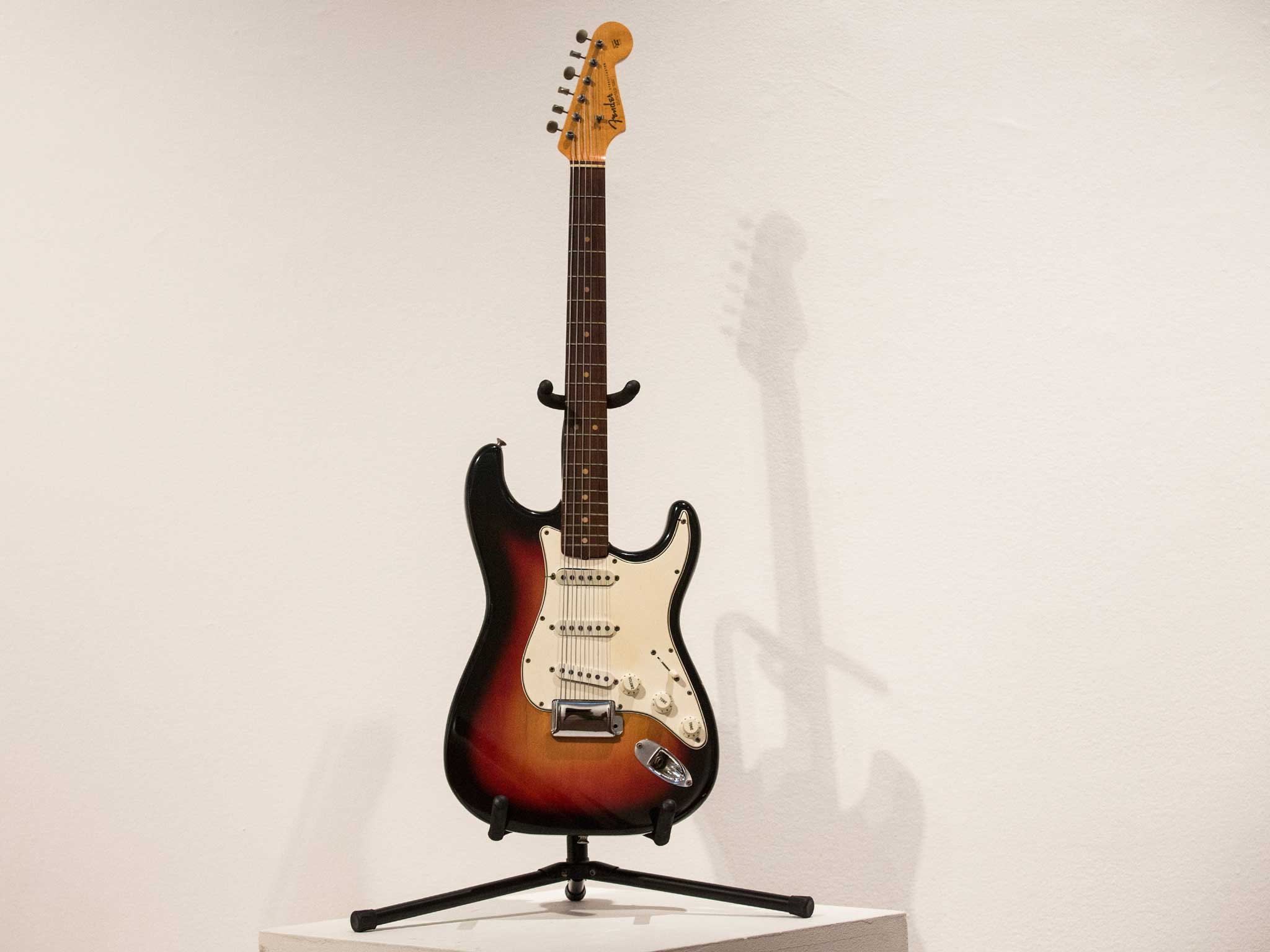Bob Dylan's 'going electric' guitar from Newport Folk Festival sells for nearly $1m

For Bob Dylan fans, the moment he plugged in his electric guitar at the 1965 Newport Folk Festival, signalling a departure from his folk roots, has gone down in history. Yesterday, the Fender Stratocaster on which he plucked and strummed his first electrified notes to a live audience sold for $965,000 (£590,000) — the highest price ever paid for a guitar at auction.
The sale took place at the New York auction house Christie's, with the buyer remaining anonymous, identified only as a private individual. It was expected that the guitar, finished in a classic sunburst with original flat-wound strings, black leather strap and Fender hard-shell case, to go for far less, $300,000 to $500,000.
However, as well as being a top-quality piece of kit, the buyer has also secured a part of rock heritage. Dylan's legendary performance at the festival in Rhode Island 48 years ago marked his rupture with the folk movement's old guard and solidified his shift away from acoustic music, like "Blowin' in the Wind," toward amplified rock, such as "Like a Rolling Stone."
The raucous, three-song electric set was booed by some in the crowd, and folk purists saw Dylan as a traitor and a sellout.
But "his going electric changed the structure of folk music," said Newport Folk Festival founder George Wein, 88. "The minute Dylan went electric, all these young people said, 'Bobby's going electric. We're going electric, too."'
The previous record for a guitar sold at auction was held by Eric Clapton's Fender, nicknamed "Blackie," which sold at Christie's for $959,500 in 2004.
Dylan's guitar had been in the possession of a New Jersey family for nearly 50 years after the singer left it on a private plane.
The pilot's daughter, Dawn Peterson of Morris County, N.J., said her father asked Dylan's management what to do with the instrument, and nobody ever got back to him.
Last year, she took it to the PBS show "History Detectives" to have it authenticated, and rock-memorabilia experts matched its wood grain to close-up color photos of Dylan's instrument at the 1965 festival.
Enjoy unlimited access to 70 million ad-free songs and podcasts with Amazon Music
Sign up now for a 30-day free trial
Enjoy unlimited access to 70 million ad-free songs and podcasts with Amazon Music
Sign up now for a 30-day free trial
Dylan's attorney and his publicist didn't respond to email and phone requests for comment. Dylan and Peterson, who declined to be interviewed, recently settled a legal dispute over the items. The terms weren't disclosed.
In embracing electric guitar, Dylan was credited with infusing rock with the depth and complexity of literature.
In truth, Dylan had gone electric well before the 1965 Newport Folk Festival. Months earlier, he released the album "Bringing It All Back Home," one side of which was electric. And the single "Like a Rolling Stone" came out just days before the festival.
But his performance at one of folk's biggest showcases — in front of some of the purest of folk purists — caused a sensation.
Exactly what happened at the festival on July 25, 1965, has become enshrouded in legend, and debate persists over whether those who booed were angry over Dylan's electric turn or were upset over the sound quality or the overly brief set.
Backed by a rock band that included Mike Bloomfield on guitar and Al Kooper on organ, Dylan played such songs as "Maggie's Farm" and "Like a Rolling Stone." He returned for an acoustic encore with "It's All Over Now, Baby Blue."
Legend has it that Pete Seeger, one of the elder statesmen of the folk movement, was so angry that he tried to pull the plug on the electric performance or threatened to cut the cable with an axe.
But years later, Seeger said he had nothing against Dylan going electric — he was upset over the distortion-filled sound system.
With additional reporting by AP
Subscribe to Independent Premium to bookmark this article
Want to bookmark your favourite articles and stories to read or reference later? Start your Independent Premium subscription today.

Join our commenting forum
Join thought-provoking conversations, follow other Independent readers and see their replies